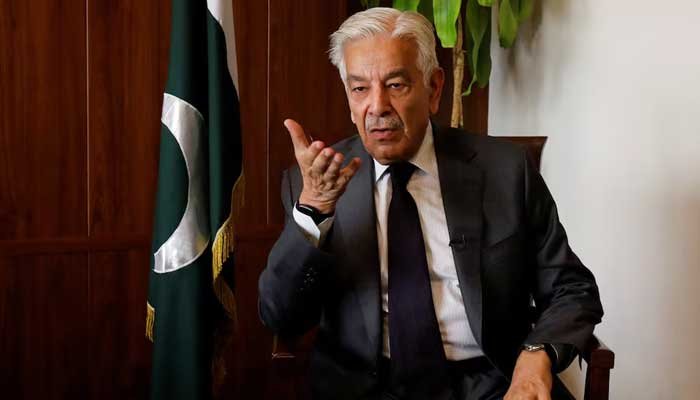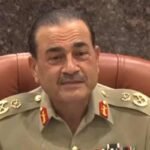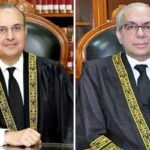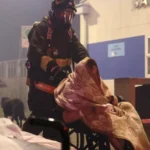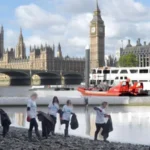DefenseISLAMABAD – Defence Minister Khawaja Muhammad Asif has called for Pakistan to adopt a “hard state” stance to combat extremism, stressing that religious groups resorting to violence cannot be tolerated in any civilized society. His remarks came as the Punjab government formally recommended a federal ban on Tehreek-e-Labbaik Pakistan (TLP) following deadly clashes that claimed several lives and injured dozens.
Speaking to News on Tuesday, Asif refrained from confirming whether the government had decided to outlaw the TLP but insisted that extremist movements acting under the guise of religion have no place in the country. “We have to become a hard state,” he said. “Such groups, which destroy public property and incite chaos, are unacceptable in any nation.”
Asif acknowledged that these extremist organizations had been nurtured over decades for political or strategic reasons. “Everyone knows who created them and why,” he remarked, adding that from now onward, the state would operate strictly according to the law and the Constitution.
When asked about Jamiat Ulema-e-Islam-Fazl (JUI-F) leader Maulana Fazlur Rehman’s threat to march on Islamabad, Asif said he was unaware of such plans but described Fazl as a “highly respectable” figure.
Meanwhile, Punjab Information Minister Azma Bokhari announced that the provincial cabinet’s decision to ban TLP had been forwarded to the federal government. She expressed confidence that the restriction would be imposed within the next two days. Bokhari revealed that a special prosecution unit had been established to investigate cases related to the violent protests in Muridke and other parts of Punjab.
—includingAccording to Bokhari, the recent unrest left three civilians dead and 48 others injured, while 110 police officers were wounded — including 18 who suffered gunshot injuries. Eight police vans were also set ablaze during the riots. She said that complete video evidence of the violence had been collected, including footage of attacks on law enforcement personnel in Shahdara.
The minister further disclosed that authorities had identified 38 financiers linked to the group’s operations and frozen all their bank accounts. “Anyone providing financial support to the TLP will face terrorism charges,” Bokhari warned.
She clarified that the government’s actions were not directed against any sect or religious community but against the ideology of extremism itself. Bokhari confirmed that several mosques associated with the group had been taken over by the government, while hundreds of seminaries were geo-tagged for monitoring.
In addition, she revealed that 33 terrorism cases had been registered and all key suspects, including TLP chief Saad Rizvi and his brother, were being traced. Authorities have sealed 95 bank accounts and confiscated properties linked to the group’s leadership.
“The government is not focused on elections or vote banks,” Bokhari emphasized, “but on ensuring justice and the rule of law against those spreading violence and hatred.”

